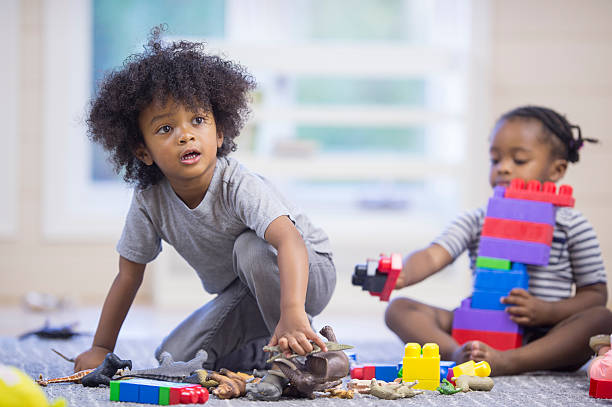The findings of a new research carried out by a team of neuroscientists at Cardiff University have revealed that playing with dolls can actually help develop children’s emotional intelligence.
According to the research which engaged state-of-the-art functional, near-infrared spectroscopy equipment to explore activation of the brain, the children played with Barbie dolls, both by themselves and with other people in the entire process.
Join our WhatsApp ChannelThe Cardiff research suggested that doll play can offer kids the opportunity to emulate scenes and interactions from their daily lives – as children mimic what they see their parents, teachers or peers say and do.
As a result, dolls can give them an outlet to recreate what they had seen and heard and rehearse skills they can use in real-life social situations.
The research also suggested that the findings were gender agnostic – revealing the comprehensive critical importance of doll play in practicing social skills.
The study, which was conducted in partnership with Barbie, also found increased activity in the posterior superior temporal sulcus (pSTS) region of the child’s brain. The idea behind this was the fact that children tend to use language about others thoughts and emotions while playing with dolls – as if the toys have feelings.
This pSTS is heavily involved in the development of social and emotional processing skills – further supporting year one’s findings that, even when children play by themselves with dolls, it can help build vital social skills like empathy
Researcher, Dr. Sarah Gerson said: “When children create imaginary worlds and role play with dolls, they communicate at first out loud, and then internalize the message about others’ thoughts, emotions and feelings.”
According to Gerson: “This can have positive long-lasting effects on children, such as driving higher rates of social and emotional processing, and building social skills like empathy that can become internalized to build and form lifelong habits.”
She said: “Internal state language can indicate that a child is thinking about other people’s thoughts and emotions while playing with dolls. These skills are really important for interacting with other people, learning from other people, and navigating a variety of social situations.
“It becomes important for making and sustaining friendships, and how they learn from their teachers, and parents,” she enlightened.
The neuroscientists simply investigated the importance of what kids said while they play and found out children use increased language about others’ thoughts and emotions when roleplaying alone with dolls – a concept known as internal state language (ISL).
In practicing ISL, children imitate social skills they use when interacting with people in the real world, which can also be potentially beneficial to children’s overall emotional development.
To corroborate, in a global survey of 15,000 mums and dads of three-to ten-year-olds, 91 percent ranked empathy as a key social skill they’d like their youngsters to have. But only 26 percent was aware that playing with dolls could help kids develop these crucial attributes.
















Nice article. I can attest to this. My nephew does that all the time.
I never thought that this spiritual temple could be so good I have tested and confirmed the power of his love spell. nothing more to say if you need spiritual help contact him or read more about him [solution- temple. com] katie